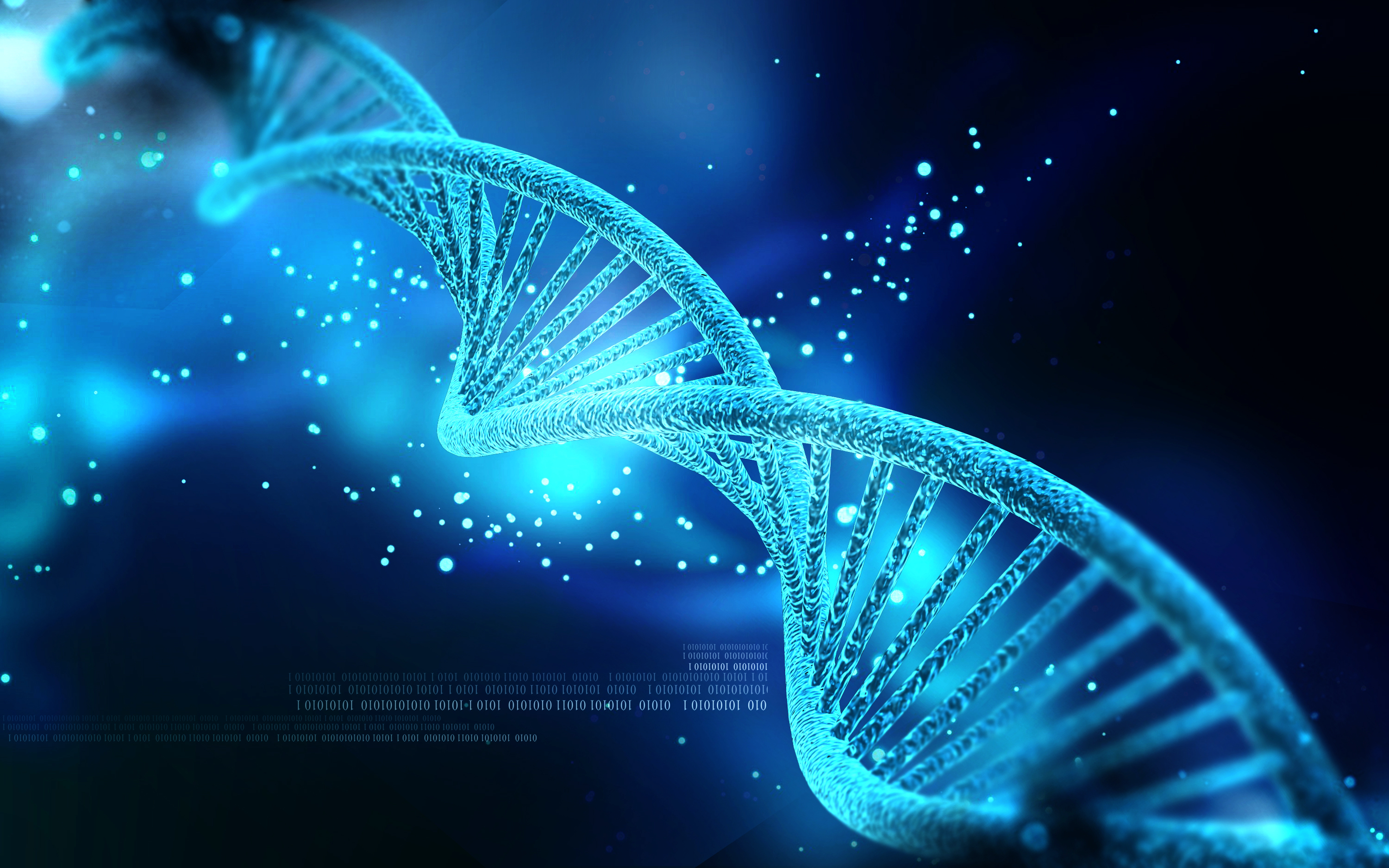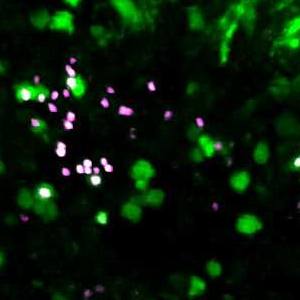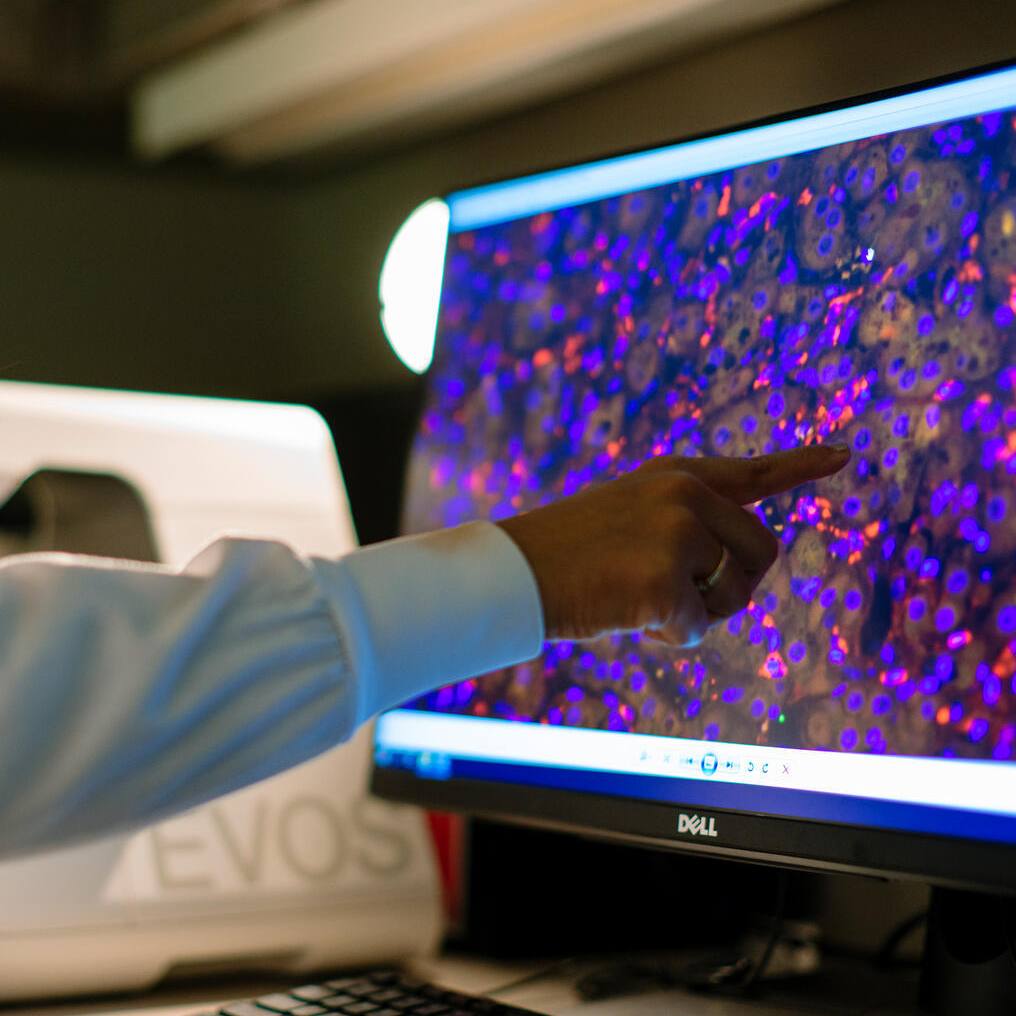-
Mayo Clinic discovers protein doubles down on cancer
 ROCHESTER, Minn. — The human cell cycle, the normal process of replication by which cells divide, separate and become two, is also a juncture where many mistakes can happen. Most of those errors are automatically repaired by the safeguards in our DNA. But when that repair system breaks down, cancer can result from the resulting mutations. Now comes the discovery of how part of that protection system works.
ROCHESTER, Minn. — The human cell cycle, the normal process of replication by which cells divide, separate and become two, is also a juncture where many mistakes can happen. Most of those errors are automatically repaired by the safeguards in our DNA. But when that repair system breaks down, cancer can result from the resulting mutations. Now comes the discovery of how part of that protection system works.
Mayo Clinic researchers have discovered that the protein that regulates the cell cycle — cyclin A2 — does double duty. In addition to its role as an RNA binding protein to coordinate DNA duplication during cell division, researchers have discovered that it also plays a role in establishing the machinery that fixes cancer-causing DNA replication errors. The researchers’ article, which appears in the latest issue of Science, identifies cyclin A2 is a first example of a protein that binds to RNA to control the production of a single protein, Mre11, a key DNA repair protein.
“Cyclins constitute a family of proteins that all living organisms possess to orchestrate ordered progression through the cell division cycle,” explains Jan van Deursen, Ph.D., senior author of the study. “Most family members were discovered 25-30 years ago and thought to uniquely function in the sequential activation of specific cyclin-dependent kinases at different stages of the cell cycle clock. Disruption or deregulation of the cell cycle is a common cause in the development of cancer, so researchers have been interested in understanding this process in the greatest detail in the hope to use this knowledge to develop new medicines to treat human cancers.”
Investigation of cyclin A2’s functions in living organisms posed a unique technical hurdle for the team because of the crucial importance of this protein for survival of cells engaging in cell division. The normal approach for this kind of study would involve making genetically altered “knockout” mice with their cyclin A2 removed, so that the effects of this omission could be detected and linked to the protein’s function. But, in this case, because the function of the protein is essential for cell division, none of the mice survived; the “knockout” was lethal.
To overcome this setback, the team prepared a second set of genetically modified mice, but controlling the modification so that enough of the protein was available to keep them alive. Although the mutant mice looked normal, they were prone to cancer. Experiments designed to decipher the underlying causes revealed that cyclin A2 harbors a unique functional unit that allows it to bind to Mre11 gene transcripts to usher them to ribosomes, which are particles specialized in translating transcripts into proteins.
MEDIA CONTACT: Bob Nellis, Mayo Clinic Public Affairs, 507-284-5005, newsbureau@mayo.edu
“This new cyclin A2 property is essential to make sufficient Mre11 protein at the start of DNA duplication to repair cancer-causing errors that inevitably happen during this process,” says Arun Kanakkanthara, Ph.D., the lead author of the study. “The expectation is that cyclin A2 is a founding member of a new family of RNA binding proteins whose own expression is tightly coordinated with another protein through protein translation mechanism.”
This research, which involved 17 Mayo Clinic researchers from three departments, was supported by three grants from the National Institutes of Health: CA126828, CA168709 and CA166025.
###
About Mayo Clinic
Mayo Clinic is a nonprofit organization committed to clinical practice, education and research, providing expert, whole-person care to everyone who needs healing. For more information, visit http://www.mayoclinic.org/about-mayo-clinic or https://newsnetwork.mayoclinic.org/.







